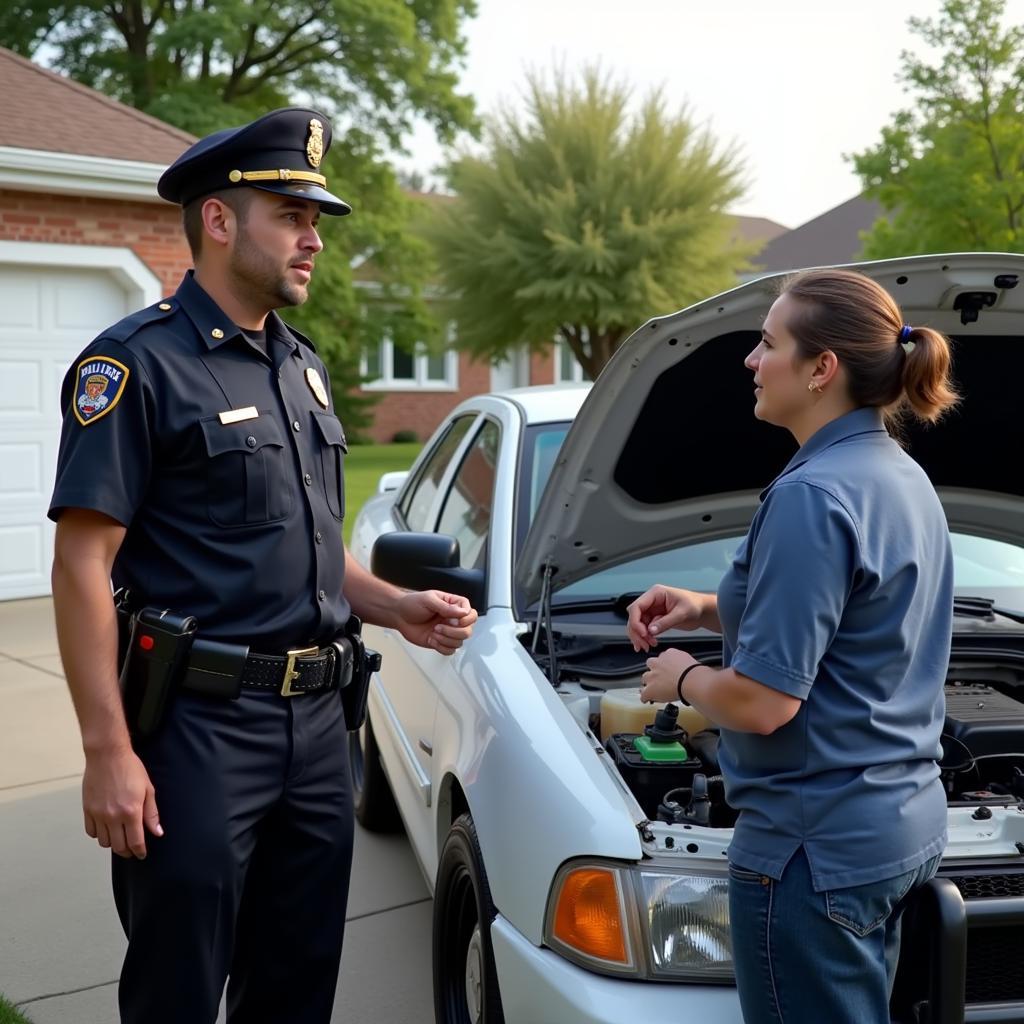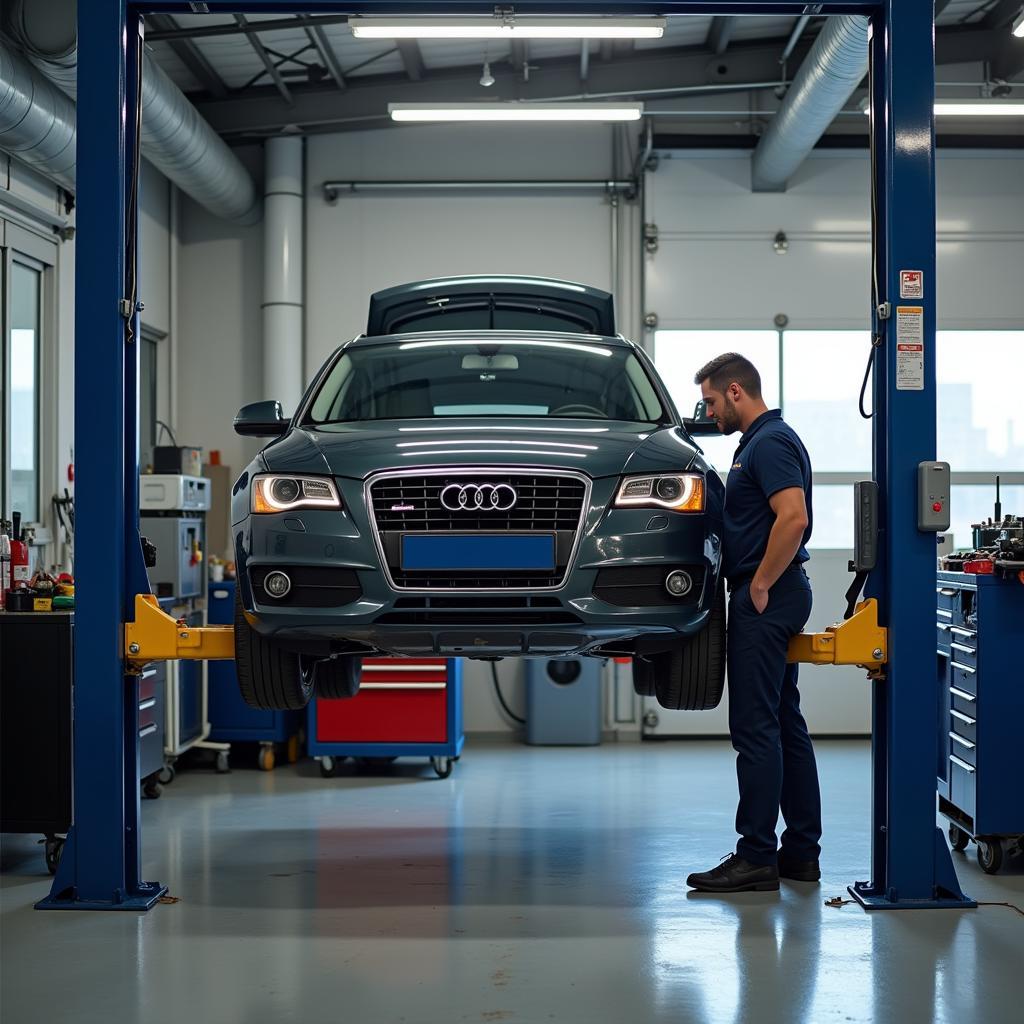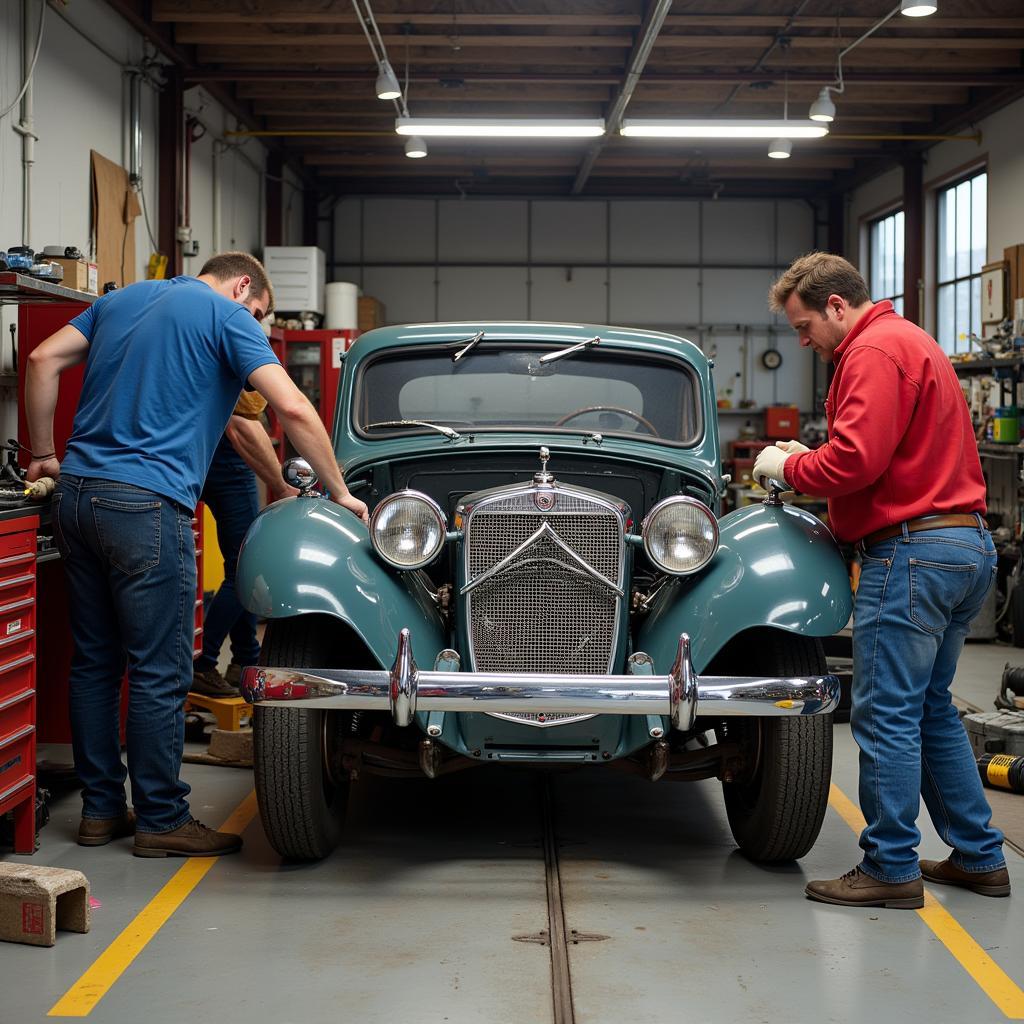The sight of flashing lights and a stern officer demanding to know what you’re doing under the hood of your own car is enough to make any DIY mechanic’s heart sink. “Cop Arrest Man For Fixing His Car” might sound like a headline ripped from an alternate reality, but the truth is, legal gray areas and misunderstandings can sometimes lead to unfortunate encounters with law enforcement while performing vehicle repairs. This article aims to shed light on the potential legal pitfalls, practical considerations, and responsible DIY practices that can help you avoid becoming the subject of such a headline.
The Right to Repair: Myth vs. Reality
Many car owners believe in an inherent “right to repair,” assuming they’re legally allowed to tinker with their vehicles on their own property. While the sentiment is understandable, the reality is more nuanced. Laws vary significantly between jurisdictions, and what’s permissible in one state or county might be frowned upon or even outright illegal in another.
For instance, some municipalities have noise ordinances that restrict the hours during which loud activities, including car repairs, are permitted. Others might have zoning regulations that prohibit certain activities, like vehicle maintenance, in residential areas. Additionally, environmental regulations regarding fluid disposal, particularly used oil and coolant, are strictly enforced in many places.
Common Triggers for Law Enforcement Intervention
While the vast majority of DIY car repairs go unnoticed by law enforcement, certain situations can increase the likelihood of attracting unwanted attention:
1. Location, Location, Location
Performing major repairs on the street or sidewalk can obstruct traffic, inconvenience pedestrians, and raise red flags for law enforcement. Similarly, working on your car in a dimly lit area or late at night might arouse suspicion.
2. Noise Complaints
The whirring of power tools, the clang of metal on metal, and the occasional frustrated shout can quickly draw the ire of neighbors, especially in densely populated areas.
3. Visible Hazards
Leaving car parts strewn across your driveway, working without proper safety gear, or having open containers of flammable liquids in plain sight can all create potential hazards that attract the attention of law enforcement.
 Police Officer Talking to Car Owner
Police Officer Talking to Car Owner
Protecting Yourself: DIY Best Practices
While there’s no foolproof way to guarantee you won’t encounter law enforcement while working on your car, adhering to some basic guidelines can significantly reduce the risk:
1. Know Your Local Ordinances
Familiarize yourself with local noise ordinances, zoning regulations, and environmental laws related to vehicle repair. Your city or county website is a good starting point for this information.
2. Choose Your Workspace Wisely
Whenever possible, work inside a garage or on a driveway well away from the street. Avoid working late at night or during times when noise is likely to be a nuisance.
3. Maintain a Tidy Workspace
Keep tools organized, car parts contained, and flammable liquids stored safely and out of sight.
4. Be Mindful of Noise Levels
Try to minimize noise, especially during sensitive hours. Consider using quieter tools when possible, and avoid prolonged use of equipment that generates excessive noise.
5. Dispose of Fluids Responsibly
Used oil, coolant, and other automotive fluids should never be poured down the drain. Collect these fluids in designated containers and dispose of them at authorized recycling centers.
6. Be Respectful and Cooperative
If a law enforcement officer does approach you, remain calm, polite, and cooperative. Explain that you are performing routine maintenance on your own vehicle.
“It’s always better to err on the side of caution,” advises John Smith, a veteran automotive mechanic and legal consultant. “Taking a few extra minutes to clean up your work area, dispose of fluids properly, and be mindful of noise levels can go a long way in preventing unnecessary encounters with law enforcement.”
When Repairs Require Professional Help
While DIY repairs can be rewarding and cost-effective, there are times when seeking professional help is the safest and most sensible option. Complex electrical work, intricate engine repairs, and tasks requiring specialized tools or knowledge are often best left to trained professionals.
 Car Being Worked on in a Professional Garage
Car Being Worked on in a Professional Garage
Conclusion
While the phrase “cop arrest man for fixing his car” might seem like a sensationalized headline, it highlights the importance of understanding the legal and practical considerations surrounding DIY car repairs. By being aware of local regulations, choosing your workspace wisely, minimizing disruptions, and practicing responsible DIY habits, you can significantly reduce the chances of attracting unwanted attention while keeping your car running smoothly.
If you have any questions or concerns about legal car repair practices in your area, don’t hesitate to reach out to AutoTipPro for expert advice and guidance. You can contact us at +1 (641) 206-8880 or visit our office at 500 N St Mary’s St, San Antonio, TX 78205, United States.





Leave a Reply